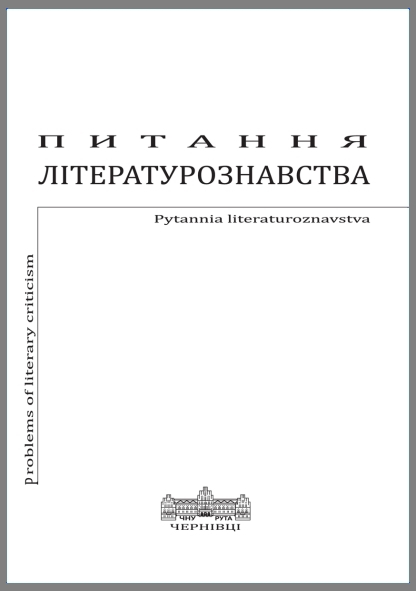Жанровые Инновации И Рецепция Фаддея Венедиктовича Булгарина В Чешской Среде
Genre Innovations and Reception of Thaddeus Venediktovich Bulgarin in the Czech Community
Author(s): Ivo PospíšilSubject(s): Fiction, Social Philosophy, Russian Literature, 19th Century, Hermeneutics
Published by: Чернівецький національний університет імені Юрія Федьковича
Keywords: Faddey Bulgarin; social conception; context; science fiction short stories; utopia; science fiction; skeptical dystopia; skaz short story; Czech reception;
Summary/Abstract: Faddey Bulgarin (1789–1859) is one of the predecessors nad inspirers of new genre forms in the three spheres: in the formation of the genres of the moral-satirical novel, in the skaz narration and the specific genre forms of utopoia and dystopia. The kernel of Bulgarin’s science fiction is a descriptive, but inventive style, unimpressive construction of the plot, the elements of the sermon representing the fragments of utopian models as a counterbalance to post-romantic irony and sarcasm leading to the frustrating picture of the future world. Its paradigm mioving from the technological toěšards geerakl social and existential and to life skepticism of dystopia whioch gradually arises in Bulgarin‟s prose fragments, prevailed in the Russian science fiction in the course of the whole 20th century and, to a certain extent, seemed to be dominant even in the 21st century. The term “moral-satirical” for the genre of Ivan Vyzhigin (1829) is not surprising: both the poles complemented each other. The inclination to the to the balancing of the lights and the shades, towards poisonous sarcasm and evolutionary way to the good – this is the basis of Bulgarin’s work. The peculiar “balance arithmetic”, a certain calculation was an object of sharp criticism. Bulgarin was, partly by right, suspected of servility towards the government, of the improvement, the idealization of social situation. The author attacks, above all, the debauchery and social impotence of aristocracy based on the would-be efforts of the government “to widen the space of reason and education”. He exactly defined the opening scissors between the autocracy and family aristocracy after December 1825. Bulgarin’s hero moves in a wide social and geographical space, but the key episodes take place in the environment of merchants and entrepreneurs of a small town or in a province of the landowner’s way of life; the majority of the readers of Bulgarin’s novels and novellas/short stories come from this very environment. On the boundary of the 1820–1830s Bulgarin demonstrates the unstoppable influence and power of the middle class which got an immense impulse after the defeat of the Decembrists. Bulgarin cultivates the genre of the skaz novella or short story, the original narrative which anticipated the similar narrative forms in the creation of N. S. Leskov, A. Remizov, and V. Shukshin. In the Czech environment he was up to the mid-19th century more popular than Pushkin himself. The scenery and social background of his prose works, adventurous plots, the refinement of a specific narrative technique attracted the attention of his readers. The Czech translations are archaic, now nearly not readable, containing many Russisms and mistakes in translation, inaccuracies and deformations, but nevertheless there the translations which acquainted a Czech reader of the period of the Czech national revival with the works of this Russian prose writer.
Journal: Питання літературознавства
- Issue Year: 2018
- Issue No: 97
- Page Range: 191-208
- Page Count: 18
- Language: Russian

